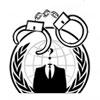 The New York Times is reporting that Spanish Law enforcement officials have arrested three individuals in connection with cyberattacks on Sony’s PlayStation Network as well as other corporations and governments around the world. The individuals are alleged to be leading members of the internet hacker collective Anonymous.
The New York Times is reporting that Spanish Law enforcement officials have arrested three individuals in connection with cyberattacks on Sony’s PlayStation Network as well as other corporations and governments around the world. The individuals are alleged to be leading members of the internet hacker collective Anonymous.
An unnamed 31-year-old man was arrested in the city of Almeria on May 18 shortly after an attack was launched on the site of the Spanish National Electoral Commission according to the report. At the man’s apartment in Gijon, law enforcement officials discovered a server which they claim was used to launch cyberattacks against Sony’s online gaming store, two Spanish banks, an Italian energy company, and government sites in Spain, Egypt, Algeria, Libya, Iran, Chile, Colombia, and New Zealand, according to the report on Friday.
There were two additional arrests in Barcelona and Valencia, but the report has no further information regarding these individuals. It is also unclear whether the alleged worked alone or, if not, how significant a role they played in the recent attacks against Sony and others.
Police said they examined millions of lines of chat logs since October and that these individuals had “the capacity to make decisions and direct attacks,” however it is unclear whether the three individuals were merely regional leaders in the group, or higher level members.
Sony spokesperson told the New York Times she had no information regarding the arrests and would not comment.
According to the New York Times, the investigation dates back as far as October 2010, when hackers overwhelmed the Spanish Ministry of Culture’s Web site in response to a new piece of legislation in that country that would hand down more sever punishments in cases of online piracy.
This isn’t the first time we’ve seen alleged members of Anonymous arrested. The report cites actions taken against alleged members in the UK and the US. However, the arrests to date have often been of foot soldiers who helped the group carry out distributed denial of service (DDoS) attacks. Back in December, Threatpost reported that a Dutch teen was arrested in connection with DDoS attacks on Visa and Mastercard which he carried out in retaliation for actions these countries’ took against whistle-blower Web site Wikileaks. There have also been recent reports that NATO intends on taking action against Anonymous. Anonymous addressed these reports with a public statements warning the multi-nation fighting force against pursing it.








